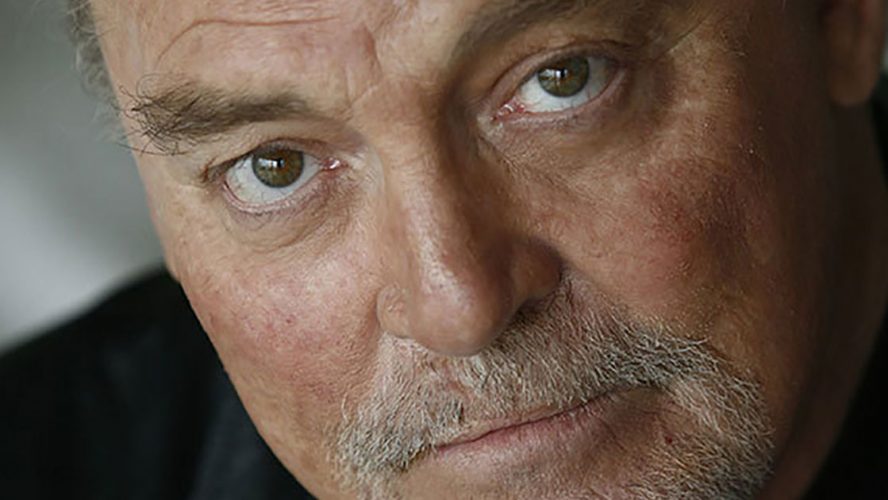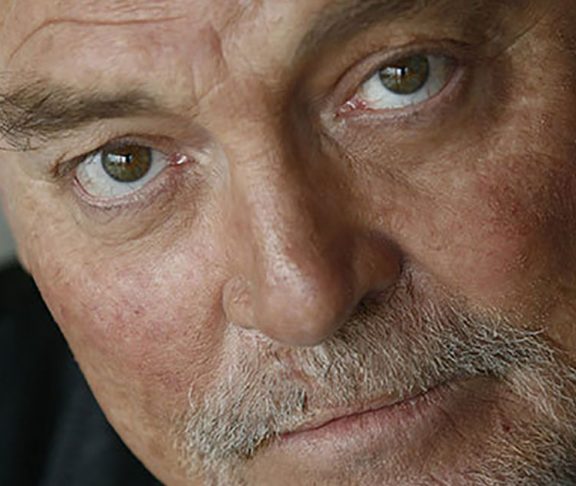“American Greed” is a television show that highlights the measures some people will take to scam innocent people out of their money. Since the show’s debut on CNBC in 2007, it’s narrator and voice has been actor Stacy Keach, Jr. While the show has opened Keach’s eyes to the amount and severity of deception happening across the country, he witnessed as a child the extent to which fraud can devastate a person and a family.
When Keach was 12 years old and living in South Texas, his grandfather came home, excitedly telling his family that he bought shares in an oil well. The family piled in the car and drove to Sinton, where the oil well was located.
“My grandfather told me to climb up on the oil drum and to see what we have down there,” Keach said. “I climbed up and there was nothing there.
“My grandfather was a victim of someone who sold him a bill of goods. It was painful for him because it wasn’t something he could afford.”
Keach’s family’s experience happens far too often, something he is reminded of on every episode of the show. On every single episode of “American Greed,” there is someone who puts his or her trust into somebody — family member, friend or stranger — and believes in that somebody, only to find out the hard way that they’re lying.
All fraud is not created equal
Many of us would like to find an easy, legitimate way to get rich quick. Keach even wrote a song about it: “Some People Will Do Anything for Money.” It could be investing in the stock market or putting your chips on red at the roulette wheel. For fraudsters, it’s all about tricking people into believing in what they have to sell. But the old adage is true: If it sounds too good to be true, it usually is. They get rich; their victims end up humiliated and broke.
All fraud is bad — fraudsters are all sociopaths who have no qualms hurting people, said Keach — but all fraud does not commit the same level of harm. Keach pointed to two examples from the show. One is Jan Lewan, the “Polka King,” who took advantage of his fans to convince them to invest in shares of his gift store by promising large returns that never came through. The other instance focused on the black widows, Helen Golay and Olga Rutterschmidt, two elderly women who took in the homeless and alcoholics, purchased life insurance on the people they were helping and then murdered them for the benefits.
“Some shows are just good stories where no one is really hurt — well, they are always hurt, but not murdered,” said Keach. “There’s a range.”
Health care fraud
The fraud cases that make Keach the angriest involve health care. Patients trust their doctors; the former’s lives are literally in the latter’s hands. Yet, the show highlights doctors who victimize the elderly by prescribing opioids or diagnosing them with a fake disease so that they’ll need more treatments. “Those are the worst guys,” said Keach. “They’re the scumbags.”
The worst of the health care scammers, in Keach’s opinion, is Martin Shkreli, the so-called “Pharma Bro,” who, as a pharmaceutical company owner, raised the price of lifesaving, anti-parasite drug Daraprim by 5,000 percent. “When they finally brought him into court, he invoked the Fifth Amendment, smirking the whole time,” said Keach.
Increasing fraud awareness
Fraud is a silent crime, undetected until the victim realizes there won’t be money rolling in, or their bank account has been drained, or they discover the oil well is dry. Keach believes his show is providing more awareness, not only for the victims but also for the law enforcement agencies, from the FBI to the local police force, tasked with catching the fraudsters. Keach is planning an “American Greed” podcast to connect with millennials, since everyone is affected by fraud crimes.
“The narrator of ‘American Greed’ is a character I created who is an avenging angel, in a way,” he said. “When we sentence these people at the end of the show, I take great pleasure in saying ‘guilty.’”

